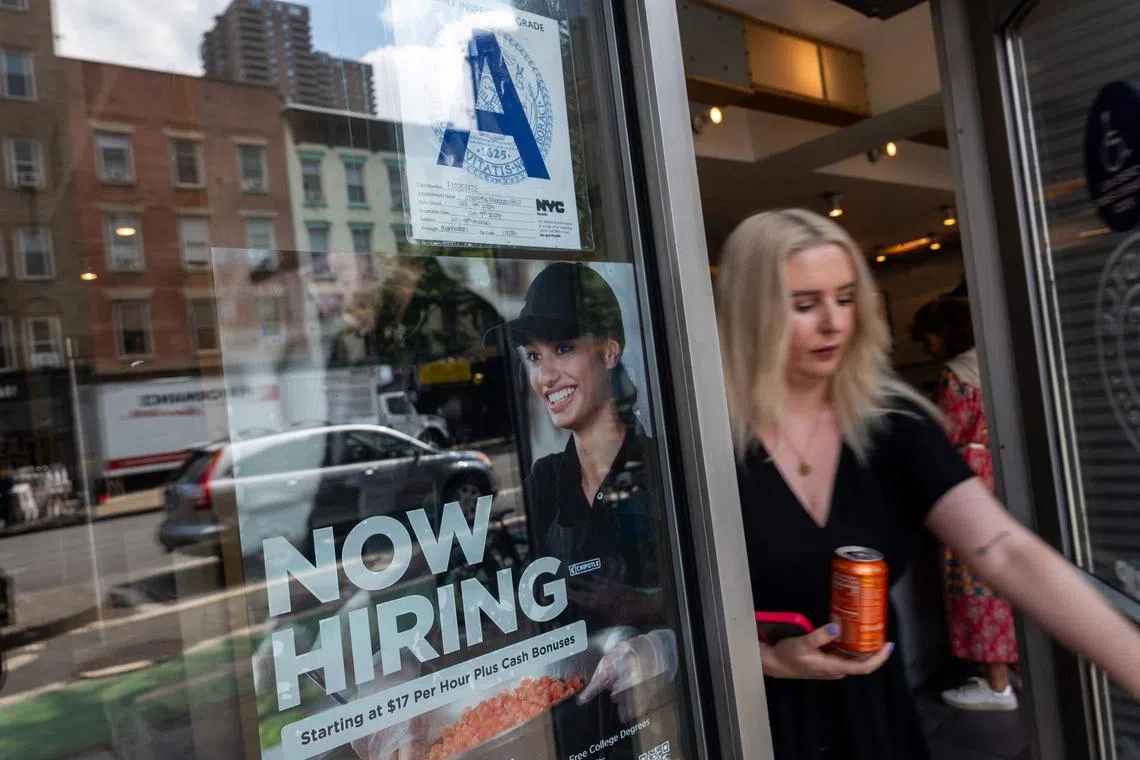IMF says US economy showing strains; tariffs pose some risks to inflation
Sign up now: Get ST's newsletters delivered to your inbox

Domestic demand in the US is moderating and job growth is slowing, says the International Monetary Fund.
PHOTO: AFP
- The IMF reports the US economy is showing strains with moderating domestic demand and slowing job growth after years of resilience.
- Inflation is nearing the Federal Reserve's 2% target, but tariffs pose risks of pushing it higher, says IMF spokesperson Julie Kozack.
- The IMF advocates accurate US economic data after downward revisions and will discuss the issue during the November review.
AI generated
WASHINGTON – The US economy is showing some strains after years of resilience, with domestic demand moderating and job growth slowing, the International Monetary Fund (IMF) said on Sept 11.
IMF spokeswoman Julie Kozack said inflation was on a path to meet the Federal Reserve’s 2 per cent target, but there were some risks that could push it higher, largely as a result of tariffs imposed on imports
“What we’ve seen over the past few years is that the US economy has proven to be quite resilient. We do see now that some strains are beginning to show,” she told a regular briefing. “Domestic demand has been moderating in the US and job growth is slowing.”
Ms Kozack said the front-loading of imports early in the year in anticipation of tariffs had caused some volatility in economic activity in the first half, and tariffs were now adding to inflation risks.
As a result of the combined factors, she said, the IMF saw scope for the Fed to lower interest rates, although it should proceed cautiously with an eye on emerging data.
She told a regular briefing that a downward revision in US employment data announced on Sept 8 was a “bit larger” than the historical average.
The US government said 911,000 fewer jobs were likely created in the 12 months to end-March than previously estimated, suggesting that job growth was stalling before President Donald Trump’s aggressive tariffs on imports.
Such revisions could be driven by a variety of factors, including statistical issues and some related to response and survey errors, she said, adding that the issue would be discussed during the scheduled IMF review of the US economy in November.
The office of the Labour Department’s inspector-general on Sept 10 said it was initiating a review of challenges that the Bureau of Labour Statistics (BLS) faces in collecting and reporting US economic data after the BLS made large downward revisions to non-farm payrolls and cut its inflation data collection.
Earlier sharp downgrades to May and June payroll figures had angered President Trump, prompting him to fire BLS commissioner Erika McEntarfer
Ms Kozack refused to be drawn in to comment on the credibility of US data, saying only that the IMF strongly advocated accurate, timely and reliable data from all its members.
“This kind of data transparency strengthens the credibility of economic management in all countries,” she said. REUTERS


